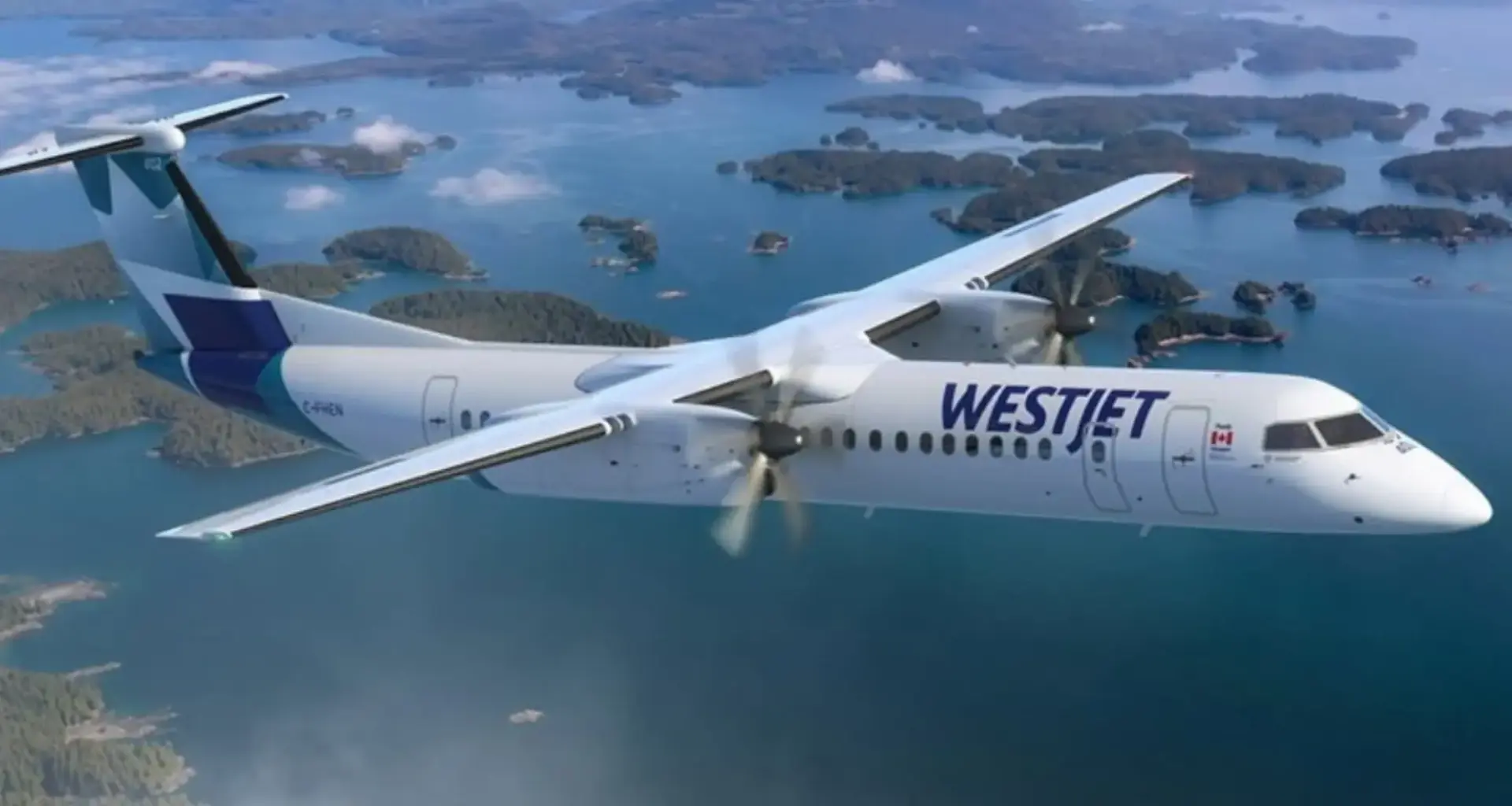A customer took to social media to accuse WestJet of price gouging after an Air Canada strike left thousands of customers stranded, but the airline says it is normal procedure.
Over the weekend, thousands of customers across the country and abroad had their flights cancelled or delayed after Air Canada flight attendants walked off the job on Saturday, demanding payment for all worked hours, better wages and work rules.
Read More
But with several passengers now looking to other airlines for tickets, one customer took to social media to complain about what she thought was price gouging from WestJet.
On Monday, the customer shared photos of a one-way ticket on Aug. 22 from Edinburgh, Scotland to Toronto for over $2,500, while the same flight is usually available on WestJet and other Canadian airlines for under $1,000.
“Let’s never forget that when Air Canada was shut down, the other airlines didn’t help. They instead price gouged Air Canada’s customers. You could have gained customers for life, instead you price gouged them four–five times the fare value. WestJet, this is despicable and short sighted,” the customer said on X.
Let’s never forget that when Air Canada was shut down, the other airlines didn’t help. They instead price gouged Air Canada’s customers. You could have gained customers for life, instead you price gouged them 4-5X the fare value. @WestJet this is despicable and short sighted. pic.twitter.com/rfqJ4XlpqC
— Margaux Peck 🇨🇦 (@MargauxPeckLaw) August 18, 2025
As the post gained traction online, WestJet then responded in the comments, claiming that prices automatically go up with increasing demand, which is a standard practice for all airlines.
“Airlines use tiered pricing based on seat availability. As lower-priced seats sell out, fares rise incrementally until the flight is full. A sudden price jump can happen if a few people book at once, like a family or group. Our apologies for any inconveniences,” the airline wrote.
The post also got hundreds of comments from other passengers, who are sharing their takes on the practice, with many saying the airline should have controlled prices as more people needed the service.
“Disgusting behaviour by all the airlines. This shouldn’t even be allowed to happen, shame on them!” an X user said.
“Not just airlines—hotels, restaurants, everyone involved—had a chance to do right by customers in tough times. Kudos to those who stepped up and earned real goodwill. Others that chose profits? Missed the moment entirely,” another user added.
“During unusual events like strikes or natural disasters, most airlines with any decency will cap their fares at a moderate level. WestJet has chosen not to do so. They are morally bankrupt,” a different user added.
“People replying “supply and demand” aren’t wrong, but they are missing the point. WestJet chose profit over customer goodwill. Their right to do so, but missed on long-term brand building, another user said.
Meanwhile, others are highlighting that the rising prices are due to increasing demand, which is a normal practice.
“Prices increased due to reduced supply – this is basic economics. It is also the only thing leading to an efficient airline ticket market,” another user added.
“To be fair that’s how supply and demand works and literally [every] industry does it. It’s the government’s fault for making it impossible for competing airlines,” a different user pointed out.
IS IT NORMAL FOR AIRLINES TO INCREASE PRICES OVER DEMAND?
Chair of the Executive Committee at the European Aviation Conference Institute and economics professor at Wilfrid Laurier University, William Morrison, tells Now Toronto that increasing prices over demand is a normal practice across airlines and even in different industries.
According to him, many of these corporations use sophisticated algorithms that modify prices in real time based on demand variations, which could have happened in response to Air Canada’s strike.
“This is not dissimilar to flowers and chocolates getting more expensive as demand surges close to Valentine’s day or UBER’s use of surge pricing,” Morrison said.
“It is possible for the revenue management team at an airline to intervene if, for example, they want to launch a promotion on certain routes. In this case, with seat capacity already low given the high travel season, it’s likely that the revenue management system would be allowed to respond to the additional demand caused by the Air Canada strike.”
The economist also explains that while capping the prices to assist stranded passengers during the strike could have helped WestJet attract more customers, a large portion of Air Canada users also prefer the airline due to its Aeroplan Loyalty program, which allows them to accumulate points for discounts.
“In addition, leisure travel customers who are not participating in loyalty programs tend to be very price sensitive and so would still be shopping for the best deals for their next holiday, with less emphasis on airline brands,” he said.
Morrison says that while price hikes can upset customers, a good solution would be to rank up competition with more airlines entering the business.
“With more competition, travellers can vote with their dollars when they are unhappy with past actions or experiences. So the dominance of Air Canada and WestJet in Canada helps to fuel dissatisfaction when travellers have limited choice,” he added.

